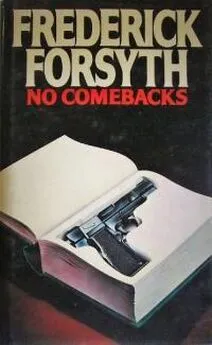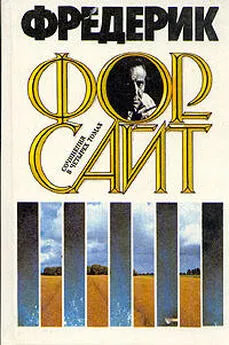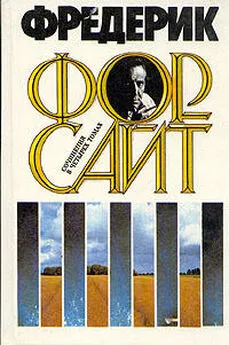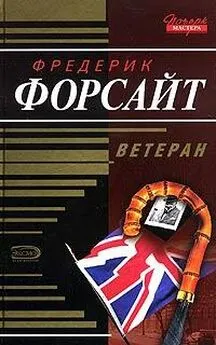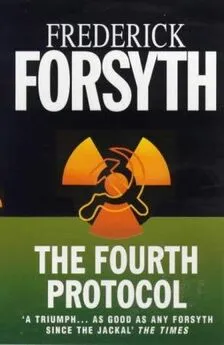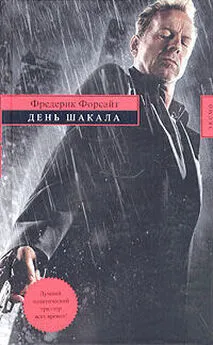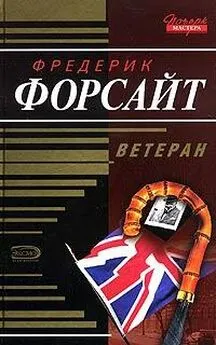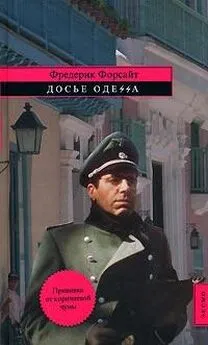Фредерик Форсайт - Нет возврата
- Название:Нет возврата
- Автор:
- Жанр:
- Издательство:Hutchinson
- Год:1982
- Город:London
- ISBN:0-09-147870-7
- Рейтинг:
- Избранное:Добавить в избранное
-
Отзывы:
-
Ваша оценка:
Фредерик Форсайт - Нет возврата краткое содержание
Перед Вами сборник из 10 рассказов, держащих читателя в напряжении, посвященных изменам, шантажу, убийствам и мести, кульминации которых шокируют неожиданными поворотами судеб. На этих страницах оживают персонажи, которых Вы не скоро сможете забыть. Живые люди бесповоротно оказываются в мире, из которого уже нельзя вернуться, если перейти "точку невозврата", перейдя от простого манипулирования покупкой и продажей человеческой жизни к смертельным актам насилия. Содержание:
1. Никаких улик
2. В Ирландии не водятся змеи
3. Император
4. Бывают же дни…
5. Шантаж
6. Used in Evidence - англ.
7. Абсолютная привилегия
8. Долг
9. A Careful Man - англ.
10. В дураках
Нет возврата - читать онлайн бесплатно полную версию (весь текст целиком)
Интервал:
Закладка:
Just south of Maidstone the motorway finally ran out and a few miles later, at Harrietsham, Richards pulled off the main road and cut south towards that box of unspoiled orchards, fields, woods and hop gardens that is called the Weald. It was in this tract of lovely countryside that Timothy Hanson had his country house.
Then there was the Chancellor of the Exchequer, master of his country's finances. He would want his share, thought Hanson, and a substantial share it would be. For there was no doubt about it. One way and another, after years of delay, he was going to have to make a will.
'Mr Pound will see you now, sir,' said the secretary.
Timothy Hanson rose and entered the office of Martin Pound, senior partner in the law firm of Pound, Gogarty.
The lawyer rose from behind his desk to greet him. 'My dear Timothy, how good to see you again.'
Like many wealthy men in middle age, Hanson had long established a personal friendship with his four most valued advisers, lawyer, broker, accountant and doctor, and was on first-name terms with them all. Both men seated themselves.
'What can I do for you?' asked Pound.
'For some time now, Martin, you have been urging me to make a will,' said Hanson.
'Certainly,' replied the lawyer, 'a very wise precaution, and one long overlooked.'
Hanson reached into his attach^ case and brought out a bulky manilla envelope, sealed with a large blob of red wax. He handed it over the desk to the surprised solicitor.
'There it is,' he said.
Pound handled the package with a frown of perplexity on his usually smooth face. 'Timothy, I do hope… in the case of an estate as large as yours…'
'Don't worry,' said Hanson. 'It was indeed prepared by a lawyer. Duly signed and witnessed. There are no ambiguities; nothing to provide any ground to contest it.'
'I see,' said Pound.
'Don't be put out, old friend. I know you wonder why I did not ask you to prepare it, but went instead to a provincial firm. I had my reasons. Trust me, please.'
'Of course,' said Pound hastily. 'No question of it. Do you wish me to put it in safekeeping?'
'Yes, I do. There is one last thing. In it I have asked you to be the sole executor. I have no doubt you would prefer to have seen it. I give you my word there is nothing in the executor's duties that could possibly trouble your conscience, either professional or personal. Will you accept?'
Pound weighed the heavy package in his hands.
'Yes,' he said. 'You have my word on it. In any case, I've no doubt we are talking about many years to come. You're looking marvellous. Let's face it, you'll probably outlive me. Then what will you do?'
Hanson accepted the banter in the spirit in which it was made. Ten minutes later he stepped out into the early May sunshine of Gray's Inn Road.
Until the middle of September Timothy Hanson was as busy as he had been for many years. He travelled several times to the Continent and even more frequently to the City of London. Few men who die before their time have the opportunity to put their many and complex affairs in order, and Hanson had every intention of ensuring that his were exactly as he would wish them to be.
On 15 September he asked Richards to come into the house and see him. The chauffeur-cum-handyman who, with his wife, had looked after Hanson for a dozen years found his employer in the library.
'I have a piece of news for you,' said Hanson. 'At the end of the year I intend to retire.'
Richards was surprised, but gave no sign of it. He reasoned there was more to come.
'I also intend to emigrate,' said Hanson, 'and spend my retirement in a much smaller residence, somewhere in the sun.'
So that was it, thought Richards. Still, it was good of the old boy to let him have over three months' forewarning. But the way the labour market was, he would still have to start looking at once. It was not just the job; it was also the handsome little cottage that went with it.
Hanson took a thick envelope from the mantelpiece. He extended it to Richards, who took it without comprehension.
'I'm afraid,' said Hanson, 'that unless the future occupants of the Manor wish to continue to employ you, and even Mrs Richards, it will mean looking for another post.'
'Yes, sir,' said Richards.
'I shall of course provide the most favourable references before I depart,' said Hanson. 'I would, however, for business reasons, be most grateful if you would not mention this in the village, or indeed to anyone at all until it becomes necessary. I would also be happy if you would not seek further employment until, say, November the 1st. In short, I do not wish news of my impending departure to get about just yet.'
'Very well, sir,' said Richards. He was still holding the thick envelope.
'Which brings me,' said Hanson, 'to the last matter. The envelope. You and Mrs Richards have been good and loyal to me these past twelve years. I want you to know I appreciate it. Always have.'
'Thank you, sir.'
' I would be very grateful if you were to remain as loyal to my memory after my departure abroad. I realize that asking you to seek no further employment for another six weeks may impose hardship. That apart, I would like to help you in some way in your future life. That envelope contains, in used and untraceable twenty-pound notes, the sum of ten thousand pounds.'
Richards' self-control broke at last. His eyebrows went up.
'Thank you, sir,' he said.
'Please don't mention it,' said Hanson. 'I have put it in the unusual form of cash because, like most of us, I have an aversion to handing over large chunks of my earned money to the tax people.'
'Too right,' said Richards with feeling. He could sense the thick wads of paper through the envelope.
'As such a sum would attract a large forfeit in gift tax, payable by you, I would suggest you don't bank it, but keep it in a safe place. And spend it in amounts not large enough to attract attention. It is designed to help you both in your new life in a few months' time.'
'Don't worry, sir,' said Richards. 'I know the score. Everyone's at it nowadays. And thank you very much, on behalf of both of us.'
Richards crossed the gravel yard to continue polishing the new Rolls Royce in a happy frame of mind. His salary had always been generous, and with the free cottage he had been able to save quite a bit. With his new windfall there would perhaps be no need to go back to the ever-shrinking labour market. There was that small boarding house at Porthcawl in his native Wales that he and Megan had spotted that very summer…
On the morning of 1 October Timothy Hanson came down from his bedroom before the sun had fully cleared the horizon. It would be a full hour before Mrs Richards came across to prepare his breakfast and start the cleaning.
It had been another terrible night and the pills he kept in his locked bedside drawer were steadily losing their battle against the shafts of pain that tore through his lower stomach. He looked grey and drawn, older than his years at last. He realized there was nothing more he could do. It was time.
He spent ten minutes writing a short note to Richards apologizing for the white he of a fortnight earlier and asking that Martin Pound be telephoned at his home immediately. The letter he laid ostentatiously on the floor at the threshold of the library where it stood out against the dark parquet. Then he rang Richards and told the sleepy voice that answered that he would not need Mrs Richards for an early breakfast, but that he would need the chauffeur, in the library, in thirty minutes.
When he had finished he took from his locked bureau the shotgun from whose barrel he had sawn ten inches of metal to render it more easily manageable. Into the breech he loaded two heavy-gauge cartridges and retired to the library. '
Meticulous to the last, he covered his favourite buttonback-leather winged chair with a heavy horse blanket, mindful that it now belonged to someone else. He sat in the chair cradling the gun. He took one last look round, at his rows of beloved books and the cabinets that had once housed his cherished collection of rare coins. Then he turned the barrels against his chest, fumbled for the triggers, took a deep breath, and shot himself through the heart.
Mr Martin Pound closed the door to the conference room adjacent to his office and took his place at the head of the long table. Halfway down the table to his right sat Mrs Armitage, sister of his client and friend, and of whom he had heard. Next to her sat her husband. Both were dressed in black. Across the table, seeming bored and indolent, sat their son, Tarquin, a young man in his early twenties who appeared to have an inordinate interest in the contents of his oversized nose. Mr Pound adjusted his spectacles and addressed the trio.
'You will understand that the late Timothy Hanson asked me to act as sole executor of his will. In the normal course of events I would, in this capacity, have opened the will immediately upon learning of his death, in order to ascertain whether there were any instructions of immediate importance concerning, for example, preparations for the burial.'
'Didn't you write it anyway?' asked Armitage senior.
'No, I did not,' replied Pound.
'So you don't know what is in it either?' asked Armitage junior.
'No, I do not,' said Pound. 'In fact the late Mr Hanson pre-empted such an opening of the will by leaving me a personal letter on the mantelpiece of the room in which he died. In it he made a number of things plain, which I am now able to impart to you.'
'Let's get on with the will,' said Armitage junior.
Mr Pound stared at him coldly without speaking.
'Quiet, Tarquin,' said Mrs Armitage mildly.
Pound resumed. 'In the first place, Timothy Hanson did not kill himself while the balance of mind was disturbed. He was in fact in the last stages of terminal cancer, and had known this since the previous April.'
'Poor bugger,' said Armitage senior.
'I later showed this letter to the Kent county coroner and it was confirmed by his personal physician and the autopsy. This enabled the formalities of death certificate, inquest and permission for burial to be hurried through in only a fortnight. Secondly, he made plain he did not wish the will to be opened and read until these formalities had been completed. Finally, he made plain he wished for a formal reading, rather than any correspondence by mail, in the presence of his only surviving relative, his sister Mrs Armitage, her husband and son.'
The other three in the room looked round with mounting and less than grief-stricken surprise.
'But there's only us here,' said Armitage junior.
'Precisely,' said Pound.
'Then we must be the only beneficiaries,' said his father.
'Not necessarily,' said Pound. 'The attendance here today was simply according to my late client's letter.'
'If he's playing some kind of joke on us.. said Mrs Armitage darkly. Her mouth adopted, as of much-practised ease, a thin straight line.
'Shall we proceed with the will?' suggested Pound.
'Right,' said Armitage junior.
Martin Pound took a slim letter opener and carefully slit the end of the fat envelope in his hands. From it he withdrew another bulky envelope and a three-page document, bound along the left-hand margin with narrow green tape. Pound placed the fat envelope to one side and opened out the folded sheets. He began to read.
'This is the last will of me, Timothy John Hanson, of…'
'We know all that,' said Armitage senior.
'Get on with it,' said Mrs Armitage.
Pound glanced at each with some distaste over the top of his glasses. He continued. 'I declare that this my will is to be construed in accordance with English law. Two, I hereby revoke all former wills and testamentary dispositions made by me…'
Читать дальшеИнтервал:
Закладка:
